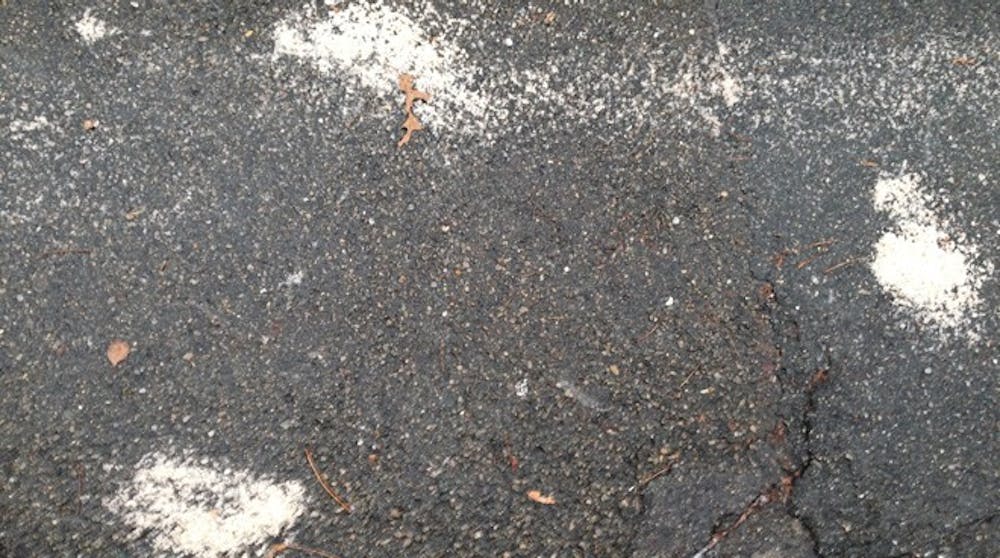Winter's in the air and on the ground at University of Richmond, but snow isn't the only white stuff coating campus these days. You could lick the sidewalks to find out, but I'll save you the trouble.
That Southerners love salt is a fact known to most people, but you might not understand how MUCH we love it. Not only must we have our food sodium-rich to keep our blood pressures high, but we also need salt on our roads and sidewalks, rusting the bottoms of our cars and killing our plants.
Now you may be thinking: But Ben, doesn't putting salt on the roads and sidewalks keep them from icing over? You're right! Salt is a substance that not only makes food more flavorful, but also lowers the freezing point of water, thus melting ice and preventing more from forming. Starting in the 1930s, American cities and counties figured out that salting roads and sidewalks could prevent that invisible ice we all cherish.
Eighty years later, and the Mid-Atlantic States have taken the lead in seasoning their roads and highways: According to research from Maryland's Department of Natural Resources, one-third of road salt usage in the United States takes place here. This is despite the fact that, outside of the mountainous areas, we get fairly little snow and ice.
This would be a fairly minor issue if it just meant the rampant rusting of vehicle bottoms and occasionally slipping on salt that's been half-assedly dumped in random piles (see photo). But when the snow and ice melts, that salt doesn't conveniently disappear. Instead, it usually leaches into nearby patches of soil or runs off into bodies of water. Salt is a natural substance, but we dump unnatural amounts of it into the environment when we salt our roads and pavement. Virginia is both blessed and burdened by being in the Chesapeake Bay Watershed: We live in one of the most beautiful and ecologically diverse areas in the United States, but we must be careful not to damage it.
Increasing the salinity of our water would not only kill the fish and other animals that live in it, but it would affect the plants and animals that use it. The 20th century saw fertilizer overuse nearly destroy the Bay's ecosystem, so it doesn't take a stretch of imagination to imagine road salt overuse being our next ecological disaster. Even the roadside residue left behind can become a kind of "salt lick," drawing deer and other animals, and creating a road-kill hazard.
For the amount of snow they receive, states in the Midwest use surprisingly little road salt. Because it's often too cold for salt to be effective, an all-natural substance is used instead to increase traction: sand. Sand can be abused too, but it at least wouldn't have the chemical consequences of hypersalinity.
This editorial won't have any effect on the university's use of road salt, I'm sure, but The Collegian's mission is to keep you as informed as possible. The University of Richmond has made great strides in increasing sustainability on campus, but a little thing like road salt can be a very bad thing.
Support independent student media
You can make a tax-deductible donation by clicking the button below, which takes you to our secure PayPal account. The page is set up to receive contributions in whatever amount you designate. We look forward to using the money we raise to further our mission of providing honest and accurate information to students, faculty, staff, alumni and others in the general public.
Donate Now


